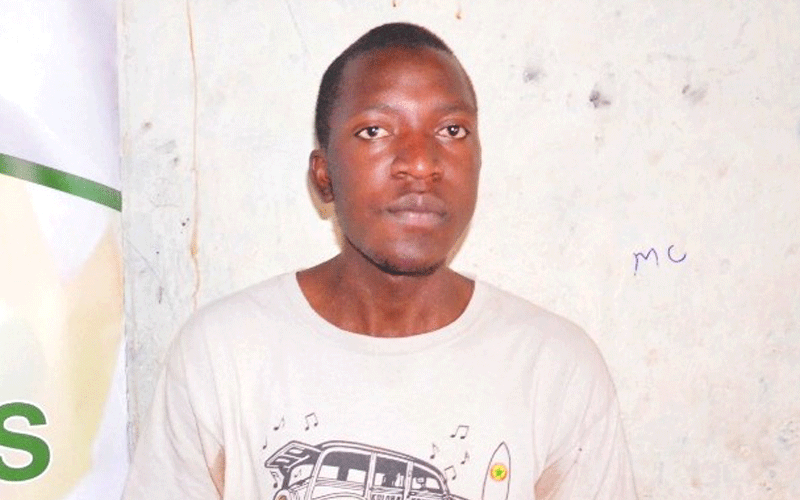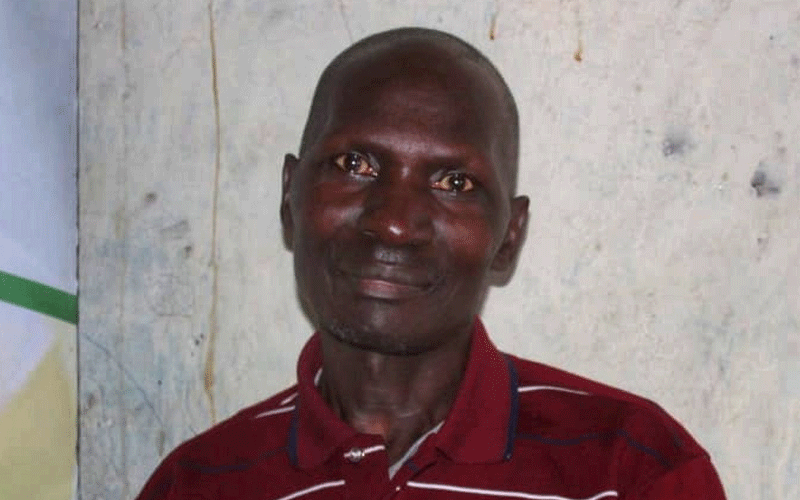Accessing cancer care amid Covid-19 pandemic period
By Harriet James, August 24, 2020
Harriet James @harriet86jim
When Thomas Odero was diagnosed with penile cancer in 2016, his life changed dramatically.
Ever since, the lack of cash has always been an impediment for him accessing treatment.
First, his National Hospital Insurance Fund (NHIF) is not working; therefore, it has taken long for him to access treatment.
Now with the pandemic, things are worse. He requires six chemotherapy sessions, but so far, he has managed three at Kenyatta National Hospital. He also needs radiotherapy.
“My insurance only paid for radiotherapy for 20 days, yet I need them for 30 days. The 10 remaining days cost Sh36,000.
I don’t have the cash to pay for that,” he says. After one radiotherapy session, Thomas needs to eat well to regain his strength before going for the next, otherwise, the medication won’t work.
“Going to the hospital is a challenge and instead of healing, it ends up being a nightmare.
Sometimes you find one doctor and have to wait for a long time before they attend to you. If you get admitted, visitors are not allowed to visit you,” he says.
His situation is compounded by the fact that he was among Kariobangi residents whose houses were demolished.
He now lives in a temporary shelter unable to raise rent or even money for food.
Sammy Asiko, 23, a resident of the same area, experiences the same challenges: lack of food, poor shelter and lack of treatment funds.
Since he is young, he wants to find someone who can, at least, hire him so that he can cater for his needs.

Sammy was diagnosed with cancer of the nasopharnyx (found under the base of the skull, above the roof of the mouth) in 2014.
Although he is in remission, as with any type of cancer, Sammy says, it is recurrent; when you think it’s gone, it returns.
“My parents are upcountry. Even when cancer is over, patients are supposed to go for checkups, which currently costs Sh20,000 at MP Shah; cash that is hard for me to find at the moment,” he explains.
What’s even worrying for him is that he cannot work in the same conditions as other people as it might trigger side effects, including allergies because of dust.
Stigma and suffering
Thomas and Sammy are part of the Symbol of Hope Warriors, a community based organisation that supports cancer patients, especially from informal settlements and marginalised communities to access care and encouragement from other patients.
Millicent Kagonga, founder of the organisation, understands very well the agony most cancer patients are going through during this pandemic.
Apart from stigma in their communities, they are quietly suffering in their homes with no one to turn to.
Millicent’s journey with cancer began in 2010. The single mother of two noticed a discharge when she was just 20 years old, but was afraid to tell anyone.
She also didn’t know what cancer was, and believed it was a disease of the rich and would never affect her.
For six years, she remained in this condition until she met a friend she could talk to, who advised her to get checked at the hospital.
There, she found other patients who befriended her. They became a source of encouragement, sharing their meals and time with her as she dealt with cervical cancer.
Millicent had also faced a lot of stigma in her community at Kariobangi and wanted to change their perception on cancer.

“I would stink and sometimes when I went to the community toilet no one would allow me to get in.
Some would not even greet me because they thought I would infect them with the disease.
That’s when I began Symbol of Hope Warriors, and held the first meeting at my home.
When I began talking about what ails me, patients gained the courage to share what they were experiencing. That’s how it all began,” Millicent narrates.
What began with just four people has now turned into a community of 23 members who look out for each other, especially now with the pandemic.
“While much focus is being placed on coronavirus, most cancer patients are suffering in their homes and don’t have access to hospitals for assistance.
I have nine members in my group who lost their homes during the demolitions in Kariobangi.
I take patients to Kenyatta National Hospital twice or thrice and visit often to find out whether they are fine.
It is hard as they are battling cancer and trying to keep safe from coronavirus,” Millicent explains.
In addition, some patients are discharged even when they have not yet fully recovered and this too has been an issue to patients battling cancer.
Dr Andrew Odhiambo, an oncologist, says leaving the hospital early poses many risks to cancer patients.
Client-centred insurance
“Studies have proven that those who leave early are at a higher risk of re-hospitalisation and will therefore incur additional health costs,” he adds.
This comes against a backdrop of the launch of a cancer policy document by the Ministry of Health, with the acknowledgment of growing burden of cancer in the country that prompted its formulation.
It offers a framework on how to manage cancer comprehensively in the country through implementation of evidence-based interventions in care.
“Basically, it is a policy to guide implementation of control strategy; a commitment by government to achieve the goal of lowering the cancer burden in Kenya.
It is supposed to be all inclusive. Patients will get a voice to speak and guide some decisions on cancer.
It’s client-centered plus multi-sectorol, meaning it cuts across various sectors including teaching institutions, faith-based organisations, private entities, and the civil society, among others,” says Dr Odhiambo.
Among many aspects of the policy is the aim to improve awareness and education on cancer prevention and control; mitigate risk factors of the disease; enchnace cancer screening and detection; strengthen referral pathways for patients; and improve access to optimal diagnostics, treatment, palliative care and survivorship care for cancer patients.
“Policy is a good step, but we want to see implementation on the ground. Let it not be just another document.
I think it’s an all-inclusive policy: could it be backed by legislation so that if not implemented we can know who to blame or task?” says Dr Odhimabo.